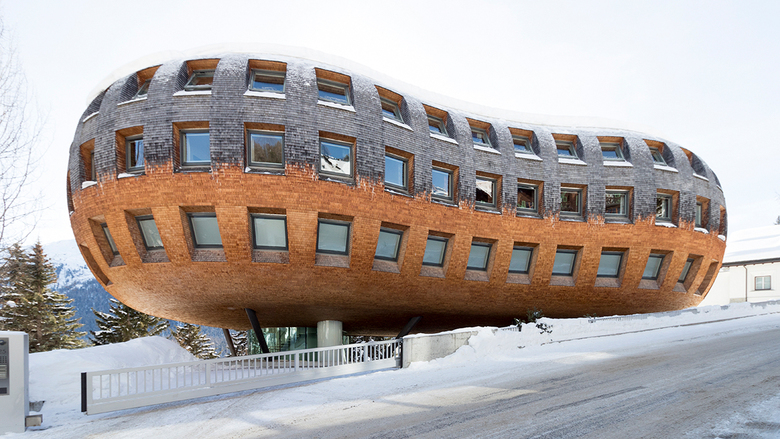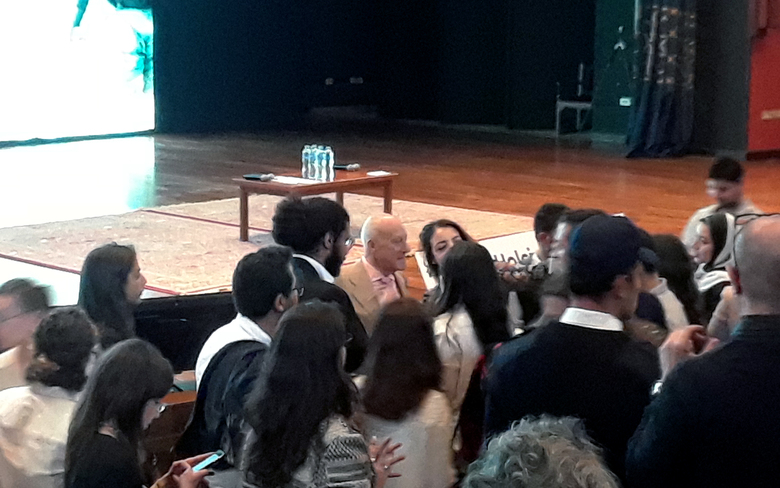InnHub La Punt
Last week World-Architects was in Cairo for the LafargeHolcim Forum, a conference series on sustainable construction hosted every three years by the LafargeHolcim Foundation. Norman Foster spoke on the first day of the three-day Forum, sharing details on a project he designed for a small village in Switzerland's Engadin valley.
Held at the American University in Cairo (AUC), the 6th LafargeHolcim Forum began with a series of keynotes, the first by Lord Foster. He spoke about a couple well-known high-budget buildings (Apple Park in California and Bloomberg Headquarters in London) but then ended with the relatively diminutive InnHub La Punt, a project being developed by Mia Engiadina for the small village of La Punt. InnHub arose from the fact 5% of La Punt's 800 residents, most of them young, recently decamped for cities.
So Foster was asked if he could create a center that would bring people from tech industries in cities like Zurich and London to create a third kind of visitor: a "working visitor." Blending tourism and the commercial sector, the project would ideally draw people "attracted to the lifestyle that this area could offer," in the architect's words. Foster was inspired by the local vernacular architecture and tried to design something that would fit sympathetically into the historic environment. The project serve as the interaction of locals and the new visitors, with spaces for the working visitors and those run by locals, be they a butcher shop, a café, or crafts, as Foster imagines them.
Since the project requires the demolition of some buildings and a change to the village's plan, it requires a referendum. Later this month InnHub will be voted on by the community; we'll report on the outcome of that vote.





